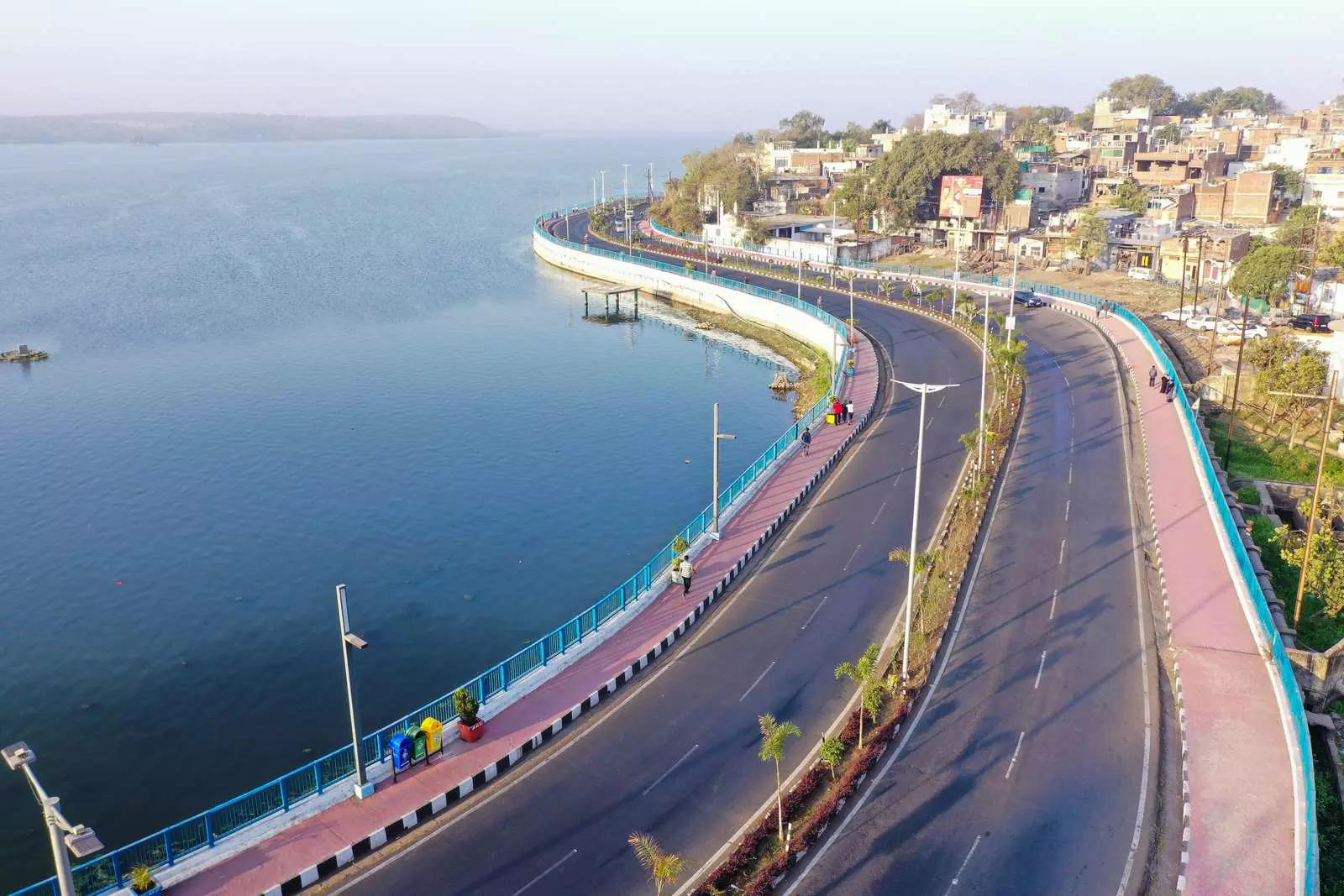
BHOPAL: Residents of Arera Colony, while admitting that barring entry of ‘outsiders’ in the colony by closing gates may not be proper, ask a question as to who is responsible for the rampant commercialisation of this residential area and how it would be stopped and by whom.
A group of residents have been corresponding with the chief secretary, additional chief secretary, urban development, collector, and municipal commissioner, Bhopal, seeking to draw their attention towards huge showrooms, bars, restaurants, hotels, and hospitals coming up in Arera Colony.
This is a residential colony where commercial activities can’t be carried out, but rampant commercialisation of the area left them with no option but to resort to ‘unlawful’ tactics like erecting gates and keeping them locked, which has harried commuters crossing the area and posed challenges and obstructions in the thoroughfare.
A recent order of the Supreme Court in Rajendra Kumar Barjatya Vs UP Avas Avam Vikas Parishad, in which the bench of Justice J B Pardiwala and Justice R Mahadevan issued elaborate guidelines on dealing with the construction of unauthorised commercial buildings in residential areas, with a direction that copies of the order be sent to all the high courts and the chief secretaries of the states for action in such cases, has come as a ray of hope for the residents.
A group among them wrote a fresh letter to the chief secretary for action against commercial establishments in Arera Colony.
The court in its judgement said, “In the ultimate analysis, we are of the opinion that constructions put up in violation of or deviation from the building plan approved by the local authority and the constructions which are audaciously put up without any building planning approval, cannot be encouraged. Each and every construction must be made scrupulously following and strictly adhering to the rules. In the event of any violation being brought to the notice of the courts, it has to be curtailed with iron hands and any lenience afforded to them would amount to showing misplaced sympathy.”
The court in its directions issued for the courts and the civic administration said, “While issuing the building permission, an undertaking be obtained from the builder/applicant, as the case may be, to the effect that possession of the building will be entrusted and/or handed over to the owners/beneficiaries only after obtaining completion/occupation certificate from the authorities concerned.”
The court further said that the builder/developer/owner shall display at the construction site a copy of the approved plan during the entire period of construction, and the authorities concerned shall inspect the premises periodically and maintain a record of such inspection in their official records.
“Upon conducting personal inspection and being satisfied that the building is constructed in accordance with the building planning permission given and there is no deviation in such construction in any manner, the completion/occupation certificate in respect of residential/commercial building be issued by the authority concerned to the parties concerned, without causing undue delay. If any deviation is noticed, action must be taken in accordance with the Act, and the process of issuance of completion/occupation certificate should be deferred, unless and until the deviations pointed out are completely rectified.”
Kamal Rathi, a resident of Arera Colony, who has been at the forefront in the fight against the commercialisation of Arera Colony, while referring to the court order, said, “All the showrooms, hotels, and commercial complexes that are coming up in Arera Colony have the building permission for a residential house, and nobody cares what is being constructed at the site. If a showroom or a shop comes up in place of a residential house, the BMC and MPEB do nothing but demand property tax and electricity charges on commercial rates. If the construction is unauthorised, they should not give them water and electricity connection at all, and that’s what SC has also said,”
When asked whether closing the door to restrict entry of people into the colony was any solution to check the commercialisation, he said, “Maybe some people believe that if gates are closed, nobody will open a shop or some outlet in the colony, there will be peace in the colony, and last but not least, vehicles being parked by outsiders in the colony’s open spaces will stop.”
The SC judges said that all the necessary service connections, such as electricity, water supply, sewerage connection, etc., shall be given by the service provider/Board to the buildings only after the production of the completion/occupation certificate.
“Even after the issuance of the completion certificate, if any deviation/violation contrary to the planning permission is brought to the notice of the authority, immediate steps must be taken by the said authority concerned, in accordance with law, against the builder/owner/occupant; and the official who is responsible for the issuance of wrongful completion/occupation certificate shall be proceeded against departmentally forthwith.”
No permission/licence to conduct any business/trade must be given by any authorities in any unauthorised building, irrespective of it being a residential or commercial building, said the judges.












